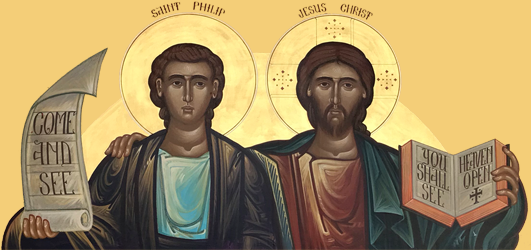Leviticus 16:29-30
“This shall be an ordinance forever for you: In the seventh month, on the tenth day of the month, you shall humble your souls, and do no work at all, whether a native of your own country or a resident alien who dwells among you. For on that day the priest shall make atonement for you, to cleanse you from all your sins before the Lord Thus you shall be clean.’” (OSB)
The Passover Sacrifice comes at the beginning of Israel’s time, in the newness of Spring, when Israel is “created” in the exodus. The Day of Atonement (Yom Kippur) comes in the “middle” of Israel’s time, almost exactly six months later, as the “death” of Fall/Autumn begins to make its appearance. Israel’s liturgical life, then, was framed by this recollection of Birth and Death; in the Church, these days have been transformed into the Feasts of Great & Holy Pascha and the Elevation of the Holy & Life-giving Cross (Sept 14).
In the Old Covenant, the Day of Atonement was, in effect, an annual ritual “house-cleaning” for God’s holy dwelling and for the people of Israel. What the individual “Sin Offering” did on a more limited basis throughout the year, the Day of Atonement offerings and rites did for the whole Tabernacle and People completely and uniquely in one day.
There were two main rites in the Day of Atonement, involving two goats. The first goat was offered as a Sin Offering, with the high priest bringing its blood into the Most Holy Place to be sprinkled on the Place of Atonement (the Kapporet [Heb.], or Hilasterion [Gk.]), that is, the lid to the Ark of the Covenant, to purify it from any “impurities” that had entered into God’s very presence:
“He shall make atonement for the holy place, because of the impurities of the sons of Israel and because of their transgressions in regard to all their sins” (Lev 16:16)
With the second goat, the Scapegoat, the focus shifts away from “impurity” to “iniquities,” that is, sins of a “high-handed” rebellious nature:
“[And Aaron will] confess over [the live goat] all the iniquities of the sons of Israel and all their transgressions in regard to all their sins” (Lev 16:21)
The Scapegoat bears on itself all the iniquities of Israel into a solitary place (Lev 16:22), going “into exile,” as it were, so that God’s people can “remain in the land.” The very act of sending the goat away is said to “atone” (Lev 16:10), for by this Israel comes to know that “as far as the east is from the west, so far has He removed our transgressions from us” (Ps 102:12).
As we reflect on the subject of “atonement,” it is important to keep in mind that Scripture and the Orthodox Tradition consistently understand “atonement” in objective terms: what God gave the Israelites in their system of worship, and what gives us in the Church, with Christ as the fulfillment and substance of Old Covenant pattern, is not about addressing abstract or subjective issues, such as legal transactions or emotional states. God is concerned with bringing about real change in us, removing barriers that hinder our communion with Him, and elevating our nature by participation in His creative and saving energies.
When St. Paul reflects on Christ’s fulfillment of the Day of Atonement in Hebrews 9-10, he is laboring to convert our minds and perceptions to what is truly real. Christ is the eternal High Priest according to the order of Melchizedek, who endured the Cross, suffering outside the City, ascended to heaven, entered into the Heavenly Tabernacle and offered His own blood on the Heavenly Mercy Seat, effecting our eternal purification and redemption. We must ask ourselves: Since this is true reality, how ought our whole lives be stamped with this eternal image?
~ by Reader Justin Gohl

